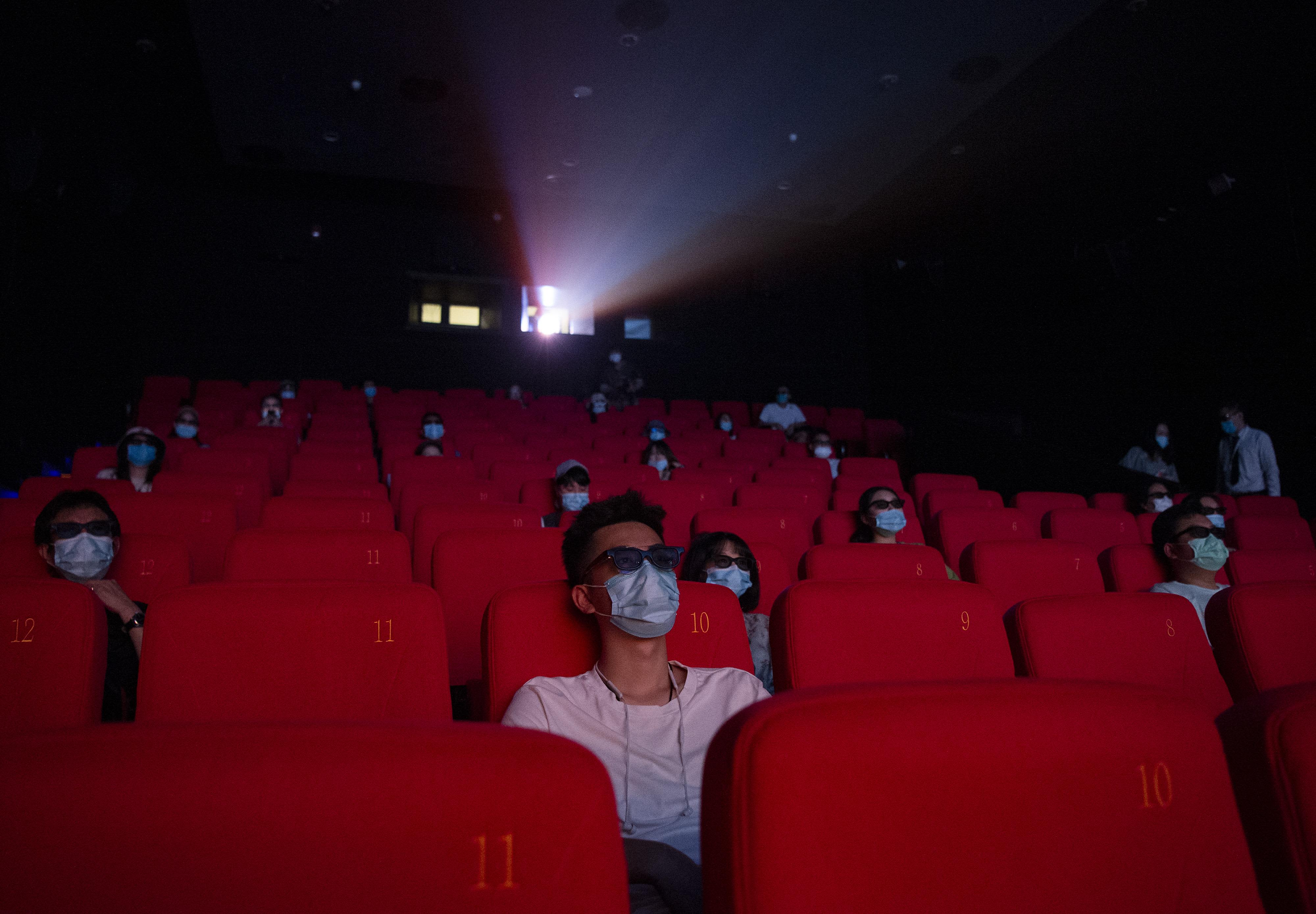Moviegoers wear face masks in a screening hall at a cinema almost six months after its closure due to the coronavirus pandemic on July 24, 2020 in Beijing, China.
China News Service | China News Service | Getty Images
Since reopening in July, the Chinese box office has flourished, proving that with time and ample safety guidelines, audiences will return to theaters in droves.
The surge in ticket sales in China, which went from $22.6 million during its first open weekend in July to more than $90 million over the most recent weekend, has led some industry analysts to be optimistic about the future of the North American box office.
For others, however, the outlook is less rosy.
In its first weekend with major theaters like AMC, Cinemark and Regal open to the public, the North American box office was able to haul in around $10 million. That’s the largest tally domestic movie theaters have seen since mid-March.
However, despite a solid start, there is a fear that coronavirus cases could continue to surge, preventing social distancing regulations from relaxing and even forcing theaters to reclose. Right now, attendance is capped, limiting how many tickets can be sold.
Much of China’s box office success has come from its handling of the coronavirus outbreak.
“China’s box office resurgence is a positive sign going forward for the rest of the world, although they achieved this cinematic victory by staying vigilant, as well as militant, in their war against Covid-19,” Jeff Bock, senior analyst at Exhibitor Relations, said. “While America is showing signs of life at the box office, our country is still far, far behind where it needs to be to safely return to levels of normality seen pre-Covid, especially in enclosed spaces aka movie theaters.”
In mid-February, China reported its highest number of daily cases, more than 15,000. Monday, there were only 40 new cases reported in the country.
Comparatively, the U.S. reported its highest number of daily cases in mid-July, more than 77,200 new cases, and Monday reported nearly 38,000 new cases, according to data compiled by Johns Hopkins University.
“The constant drumbeat of pressure from Republican elected officials to open schools and get back to work is all but guaranteed to exacerbate the problem and at a minimum, to keep the infection rate in the tens of thousands per day for the foreseeable future,” Michael Pachter, analyst at Wedbush, said. “I don’t see how we have many people over 30 willing to expose themselves to the risk of contracting Covid-19 solely to see a movie in a theater.”
According to a survey conducted in mid-August by Morning Consult, a global data intelligence company, only around 17% of consumers feel comfortable going to the movies. That’s down from around 20% in mid-July.
Less coronavirus, more open theaters
Over the weekend, China had around 8,900 of its 10,800 theaters open to the public. In the U.S., less than 1,700 of a total 5,400 theaters were open for business, according to data from Comscore. The hope is that around 2,000 theaters will be open by Sept. 4 for the U.S. release of “Tenet.”
However, four states still have yet to give the green light to theater operators, including California and New York, which have the largest number and third-largest number of theaters in the U.S., respectively.
“Those markets represent a very substantial part of the domestic box office,” Doug Stone, president of Box Office Analyst, said. “If they can open sooner rather than later, the outlook is more promising. That being said, given that there will be restrictions on capacities, I don’t see a strong return to typical numbers anytime soon.”
A member of the Blue Sky Rescue team disinfects a cinema in Beijing ahead of its reopening on July 24, 2020.
GREG BAKER | AFP | Getty Images
With fewer cases, China has been able to ease its audience cap from 30%, which was the guideline in July, to 50%, starting mid-August. If cases continue to slow, theaters could soon be allowed to have more seats available for patrons.
In the U.S., movie theaters are allowed to operate at 50% capacity, but with fewer theaters, the fear is cinemas will not be able to accommodate a large influx of new content.
For now, few movies are debuting, which allows theaters to place each new release on multiple screens and offset the impact of only being allowed to have a certain number of people attend each showing. As more films are released, that means there will be fewer auditoriums for each film to be showcased in.
If cases do not drop in the U.S. and social distancing guidelines cannot be relaxed, this could weigh heavily on the potential box office success of films like “Wonder Woman 1984,” which opens in October, and “Black Widow,” which is currently slated for November,” Stone said.
“If we are on the road to recovery, it’s going to be a much longer one than we’ve seen in China, as they stomped out the virus, whereas we swept it under the rug,” Bock said.
